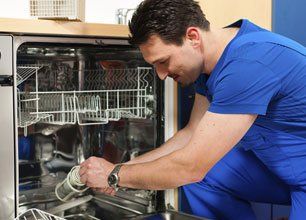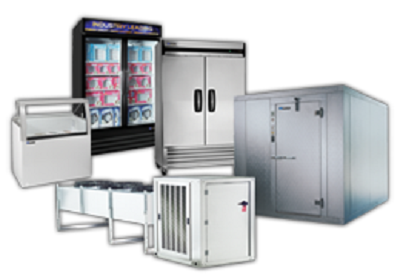Essential Tips for Effective Ref Fixing to Prolong Home Appliance Lifespan
When it pertains to your refrigerator, appropriate repair and upkeep are important for long life. You might not recognize exactly how little issues can intensify if they're left unaddressed. Normal check-ups and simple repairs can conserve you from pricey replacements down the line. Comprehending usual issues and recognizing when to act can make all the difference. Let's check out some important pointers that will assist you keep your refrigerator running efficiently for years to find.
Recognizing Usual Fridge Issues
Refrigerators are vital in keeping your food fresh, yet they can encounter a range of typical problems that interrupt their performance. If you notice food ruining quicker than common, examine the thermostat settings or consider if the door seals are harmed. Recognizing these issues early can conserve you time and money in repairs, guaranteeing your fridge runs smoothly and successfully.
Regular Upkeep Practices
To keep your appliances running efficiently, you need to remain on top of routine upkeep practices. Clean the condenser coils, check the door seals, and check the temperature setups to ensure peak efficiency. These easy jobs can save you money and time on fixings down the line.
Tidy Condenser Coils Consistently
Cleansing your condenser coils frequently can substantially boost your device's performance. Dirt and dirt build up on these coils over time, causing your appliance to work more challenging and consume even more power. To maintain them tidy, unplug your home appliance and very carefully get rid of any type of protective covers.
Check Door Seals
Three basic actions can aid you ensure your appliance's door seals are in good problem. 2nd, tidy the seals using cozy, soapy water to eliminate any kind of debris or gunk. By adhering to these actions, you'll maintain your home appliance's efficiency and durability, saving you money on power expenses and repairs in the long run.
Monitor Temperature Level Settings
Regularly checking your home appliance's temperature level setups is essential for ideal efficiency and effectiveness. Whether you're dealing with a refrigerator, fridge freezer, or stove, keeping an eye on these setups can protect against lots of issues. For refrigerators, go for temperatures between 35 ° F and 38 ° F; for fridges freezer, stay 0 ° F. If the temperature levels are expensive or reduced, your home appliance might function harder, losing power and reducing its lifespan. Use a thermometer to examine these setups consistently, especially after significant adjustments, like relocating your device or adjusting the thermostat. If you observe changes, adjust the setups as necessary and seek advice from the customer handbook for guidance. By remaining positive regarding temperature level monitoring, you'll assure your home appliances run smoothly and last much longer.
Troubleshooting Cooling Concerns
When your refrigerator isn't cooling properly, it can bring about spoiled food and squandered cash, so dealing with the problem without delay is critical. Begin by examining the temperature settings to verify they go to the recommended levels, normally around 37 ° F for the refrigerator and 0 ° F for the fridge freezer. If the setups are correct, examine the door seals for any kind of voids or damage; a damaged seal can enable cozy air to get in.
Next, take a look at the vents inside the fridge and fridge freezer. Validate they're not blocked by food items, as this can interrupt airflow. Pay attention for the compressor; if it's not running or making uncommon sounds, it might require attention. Inspect the condenser coils, typically located at the back or bottom of the device. Dirt and particles can gather, causing cooling down problems. Clean them with a vacuum or brush to optimize performance. If troubles persist, it might be time to call an expert.
Dealing With Water Leakage and Ice Accumulation
If you're handling visit this page water leakage or ice accumulation in your device, it's necessary to identify the resource of the trouble. By identifying where the water is coming from, you can protect against further issues and stay clear of expensive repair work. Allow's discover some efficient methods to deal with these common troubles.
Identify Leakage Resources
Exactly how can you efficiently recognize the sources of water leakage and ice accumulation in your home appliances? Start by checking the seals and gaskets on your fridge and fridge freezer doors. By methodically inspecting these locations, you'll pinpoint the source of the issue, allowing you to take the needed actions to fix it and prolong your device's lifespan.
Avoid Ice Development
To protect against ice formation in your appliances, begin by validating the temperature settings are suitable. If your refrigerator or fridge freezer is as well cool, it can bring about excessive ice accumulation. Check the door seals frequently; harmed seals can allow cozy air in, triggering condensation and ice development.
Keep the appliance well-ventilated and prevent overcrowding, as this can obstruct air movement - GE appliance repair Oro Valley Dependable Refrigeration & Appliance Repair Service. Also, routinely defrost your fridge freezer if it does not have an automatic defrost feature.
If you discover water leakage, recognize and deal with any kind of obstructed water drainage holes, as they can add to ice buildup. Tidy the coils and verify they're operating appropriately to preserve peak performance. Taking these actions will certainly help expand your home appliance's life expectancy and performance.
Dealing With Noisy Fridge Seems
While it may appear disconcerting, a noisy fridge commonly signals minor issues instead of major breakdowns. Determine the resource of the noise. Usual culprits include the compressor, followers, and water lines. If you hear a humming sound, it may be the compressor striving; this might just be a typical procedure noise.
Following, check for loosened things inside. In some cases, containers or racks can rattle, creating undesirable noise. Tighten or reposition them to eliminate the noises.
If you notice a clicking noise, it may be the defrost timer. This is normally safe but could indicate blog here it needs assessment.
Ultimately, confirm your fridge is degree. An out of balance appliance can create resonances and noise. Make use of a degree to check, and adjust the feet if needed. Resolving these problems without delay can help maintain your refrigerator's performance and prolong its life expectancy.
When to Change Parts vs. Full Substitute

Consider the expense of fixings versus the home appliance's worth. Additionally, if you discover continuous troubles that maintain persisting, it's an indicator that your appliance has reached the end of its life.
Understanding When to Call a Professional
How can you tell when it's time to call in a professional for appliance repair work? If your device stops working entirely or often journeys circuit breakers, it's an additional red flag.
You need to additionally consider your very own convenience degree with repair work. If you're not sure regarding identifying the problem or lack the right tools, it's best to reach out for aid. Bear in mind, trying challenging repair services can result in even more damage or also safety and security threats.

Frequently Asked Questions
Just how Usually Should I Clean the Fridge Coils?
You must clean your fridge coils every six months. This helps preserve efficiency and stops overheating. If you see extreme dirt or family pet hair, tidy them a lot more regularly to assure your refrigerator runs smoothly.

Can I Use Vinegar for Cleansing My Fridge?
Yes, you can utilize vinegar to more helpful hints cleanse your refrigerator! It's an excellent natural cleanser that removes smells and stains. GE appliance repair Oro Valley Dependable Refrigeration & Appliance Repair Service. Just mix it with water, use it to surface areas, and clean down for a fresh, clean refrigerator
What Temperature level Should My Refrigerator Be Ready To?
You ought to set your refrigerator to 37 ° F(3 ° C) for ideal food preservation. This temperature keeps your food fresh while protecting against perishing, guaranteeing your grocery stores last longer and reducing waste. It's an easy adjustment you can make!
Does a Refrigerator Need to Be Leveled?
Yes, your refrigerator needs to be leveled. If it's uneven, it can affect cooling effectiveness and create excess noise. Check the leveling legs and adjust them to guarantee appropriate equilibrium for perfect performance.
How Can I Reduce Refrigerator Energy Usage?
To decrease your refrigerator's energy intake, maintain it tidy and well-ventilated, check door seals for leakages, established the temperature level between 35-38 ° F, and prevent overwhelming it. These actions can considerably decrease your power expenses.
Comments on “Troubleshooting Tips from Refrigerator repair experts Dependable Refrigeration & Appliance Repair You Can Try Today”